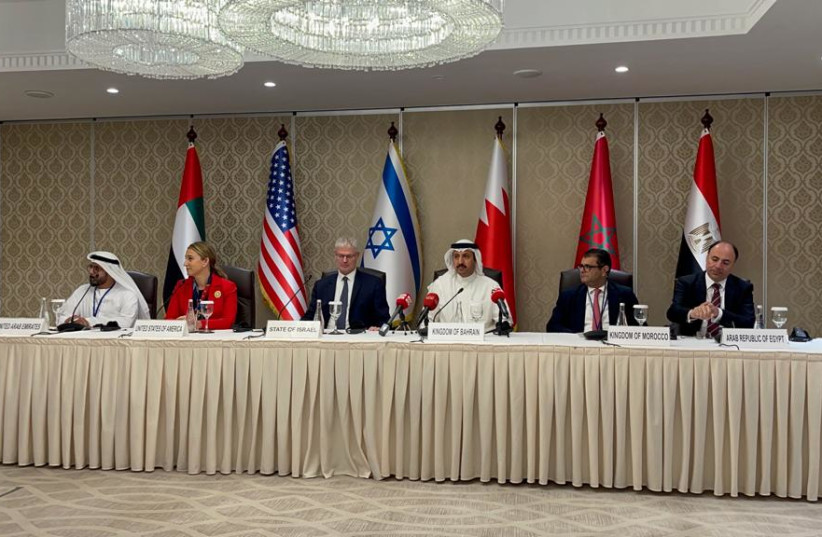I am a Canadian Israeli and a lifelong student of Arabic language and culture. For the past 17 years, I have honed my Arabic language skills and understanding of the culture by reading the Arab press. What began as a requirement for my graduate studies on the Middle East and Islam blossomed into a passion.
Unlike a dry textbook, the Arab press is a living and breathing expression of the culture and Arab opinion, and offers a way to understand how Arabs present and see themselves. Studying religious texts, folklore and news with subject matter experts add insight to what is being said in the press.
The Arab press is also a good place to understand how they view others. After moving to Israel almost two decades ago, I wanted to better understand what Arabs thought of us Jews. It’s well known that most Arab media generally refer to Israel as the “Zionist entity” and “the occupying forces.”
But the Abraham Accords have brought about a discernible change in certain quarters. Last week, for the first time in years, I saw positive relations between Israel and an Arab nation portrayed in the Arab press.
The front page of last week’s Etihad (the Arabic word for “unity”) newspaper was headlined with “Abdullah bin Zayed discusses with Herzog and Lapid solidifying peace and stability.” Beneath this headline was a picture of the United Arab Emirates’s minister of foreign affairs and Israel’s president smiling like old friends in front of the Israeli flag and the flag of the United Arab Emirates.

That was followed by a four-page spread in the front section of the paper displaying various pictures of the Israeli delegation and their Emirati counterparts: photos of them talking and laughing together, shaking hands, and pictures of their wives together. What is remarkable is how “normal” this all looked. Just another picture of a meeting of world leaders.
But this went beyond normalization
There were photos of Emirati leaders at Yad Vashem. There we saw bin Zayed laying a wreath in front of the Eternal Flame memorial for victims, listening and learning.
The following day, Etihad ran the front-page headline: “Abdullah bin Zayed: We draw a new path for the region.” It described “celebrating two years since the signing of the Abraham Accords.”
These pictures and articles portrayed Arabs and Jews in a normalized way, as friends and equals. It was clear this was the message the Emiratis wanted to send.
But has this attitude filtered down to the man on the street? I asked my Egyptian driver in Abu Dhabi what this means for the local people. He explained, “The citizens of this country are good people. They respect and look up to their leaders for decisions.”
The message to the public is clear: Israel is our partner and Israelis are normal people like we are. It shows the normalization of relations but also Israelis as friends.
To the region, it shows that peace with Israel is meaningful. Bin Zayed is not just the foreign minister but also the sheikh’s brother. In a culture where family and bloodlines matter, we can see that what has occurred is significant.
Beyond the symbology
BEYOND THIS symbolic significance, however, which cannot be downplayed, the fact that discussions also centered around economy, security and transportation also send a more practical message. In a region based on balance and values, it demonstrates the multifaceted nature of the benefits of peace to the region – benefits (such as Israeli technology) only possible in a climate of peace.
While Israel has peace agreements with Jordan and Egypt, there has never been such positive, open, coverage of the relationship in the Arab press. The hope is that this visit and the ensuing coverage will expand peace in the region as Arabs from all over the Middle East see these photos of Israeli and Arab leaders coming together collegially, normalizing both Israel and its people.
One of the biggest criticisms of the Arab world by Israel is that it incites its people to hatred by portraying Israel in a particularly negative manner. The reporting from Etihad did just the opposite. If other Middle Eastern countries followed their lead, I am certain we would have a stronger peace in the region.
We should all look to the Emirate leadership and its actions as a model for peace through its press, not only in the region, but around the world.
The writer is a Canadian Israeli international businessman and a member of the Jewish community in the United Arab Emirates.
